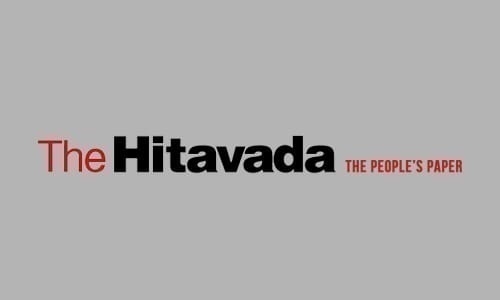ICC’s attempt to arrest Netanyahu
| Date :27-May-2024 |

By Tajul Islam
THE International Criminal Court (ICC) and its chief prosecutor Karim Khan, a Pakistani-British member of Ahmadiyya community, with deep-rooted connections with Buckingham Palace and UK’s Intelligence establishments are hitting headlines in international media in the recent days.
Criticising ICC, in a recent statement on his ‘X’ handle, John Bolton, the former National Security Advisor to President Donald Trump, expressed his anger and strong criticism at ICC for its attempts of issuing an arrest warrant against Israeli Prime Minister Benjamin Netanyahu and members of Hamas.
Ambassador Bolton denounced the ICC’s actions as ‘illegitimate’, particularly in the context of an ongoing war. He urged the United States to take decisive measures, both through Congress and the White House, to condemn the ICC and impose sanctions in support of Israel.
President Joe Biden echoed Bolton’s sentiments, labelling the ICC’s attempt to arrest Netanyahu as ‘outrageous’. A group of Republican senators, led by Senator Tom Cotton, also voiced their disapproval, warning ICC chief prosecutor Karim Khan against pursuing arrest warrants for Israeli officials in connection with the Gaza conflict.
These statements and actions highlight a clear pattern of support for Israel while simultaneously questioning the legitimacy and motivations of the ICC.
While some people may agree with Bolton, it is hard to overlook the apparent double standards at play. When the ICC issued an arrest warrant against Russian President Vladimir Putin, there was widespread celebration among US policymakers and their European allies.
Putin was accused of crimes related to his actions in Ukraine, which were seen as efforts to protect Russian sovereignty. Yet, these same leaders are now condemning the ICC for targeting Netanyahu. This inconsistency in reactions raises significant questions about the principles and motivations guiding these leaders.
The hypocrisy becomes even more apparent when considering the actions of various American Presidents. The United States has a long history of military interventions in countries like Libya and Iraq, often resulting in significant human rights violations. Despite these actions, the ICC has largely remained silent.
This silence raises questions about the ICC’s impartiality and the true motivations behind its actions. Is the ICC selectively targeting certain leaders while ignoring the transgressions of others, especially those from powerful nations like the United States?
The current push to issue warrants against Netanyahu and leaders of Hamas originates from Karim Khan, the ICC’s chief prosecutor. Khan, a Pakistani-born British lawyer and member of the Ahmadiyya community, has faced accusations of bias. Some view him as an anti-Semite, while others in Israel saw his election as a positive development, considering him ‘pragmatic’ However, pro-Palestinian media have accused him of favouring Israel and actively seeking to convict Hamas.
This mixed perception of Khan further complicates the narrative and highlights the complex dynamics at play within the ICC.
The ICC itself has a troubled history, marred by scandals and controversies. In 2015, a significant scandal involving the court came to light. An investigation by the European Investigative Collaboration (EIC) revealed questionable practices and the dubious morality of Luis Moreno Ocampo, the ICC’s first prosecutor.
These findings severely undermined the ICC’s credibility and highlighted the political games that often surround international justice.
The former chief prosecutor of
ICC, Fatou Bensouda, also faced
controversy. She has been mired in
scandal. Accusations against ICC judges have further damaged the court’s
reputation, with reports highlighting issues with their morality, integrity, and independence.
These controversies have cast a long shadow over the ICC’s ability to function as a fair and impartial institution.
The Russian Foreign Ministry has also criticised the ICC, arguing that its actions violate international law.
According to the Ministry, the ICC’s issuance of warrants against officials from non-party states to the Rome Statute, like Russia, is unlawful. This criticism underscores the complex legal and political challenges the ICC faces in executing its mandate.
The totality of violations of international law committed by the ICC and its Prosecutor suggests a persistent and probably irreversible loss of credibility.
(IPA)